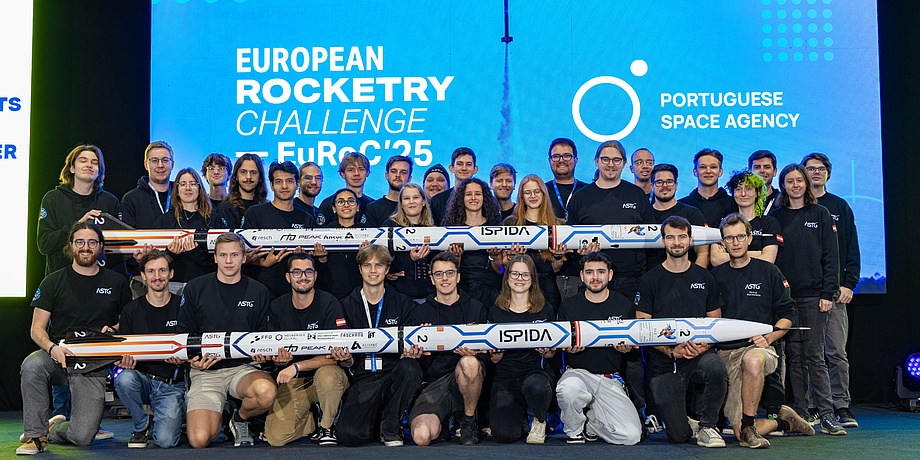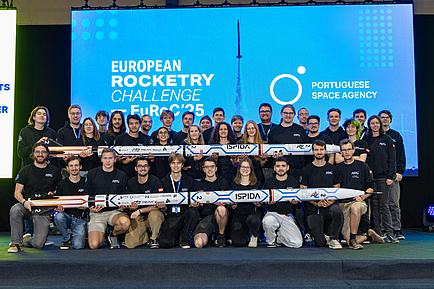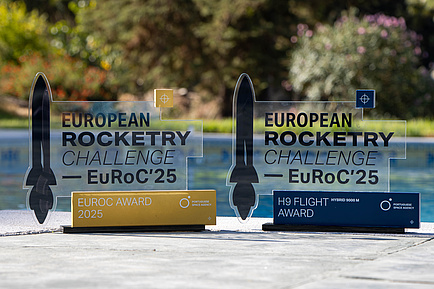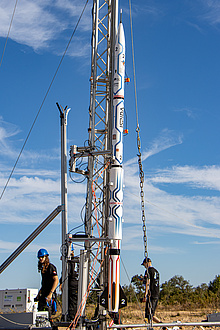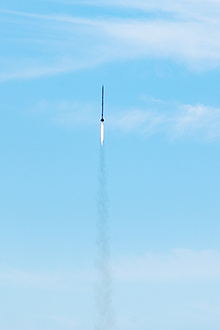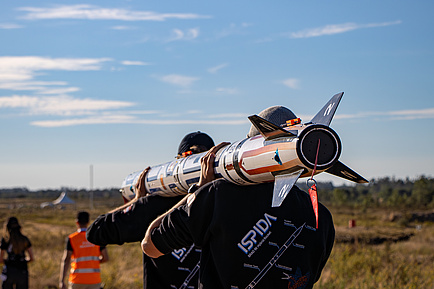At the sixth edition of the European Rocketry Challenge in Constância (Portugal), the Graz University of Technology-based student team Aerospace Team Graz once again claimed overall victory and thus the European championship title in rocket construction, following their triumph in 2023. With its ISPIDA rocket, named after a kingfisher subspecies, the team scored 938 out of 1000 possible points, winning by a margin of over 220 points ahead of the team from the University of Stuttgart in second place. Third place went to the team from the Polytechnic University of Milan. A total of 24 teams competed.
The scoring was divided into four categories: technical documentation (200 points), rocket design (250), team performance (200) and flight performance (350). In the flight evaluation, the Aerospace Team Graz competed with ISPIDA in class H9, which includes rockets with hybrid propulsion and a planned flight altitude of nine kilometres. The Graz team's rocket propulsion system uses nitrous oxide as a liquid oxidiser and HTPB as a solid fuel. During its flight, which went according to plan, ISPIDA reached an altitude of 9,366 metres, securing the Flight Award in class H9.
Almost a year of preparation
‘Our team consists of around 90 members, and I would like to thank each and every one of them for their strong performance this year,’ says Manuel Maurer, President of Aerospace Team Graz. " Preparing for the European Rocketry Challenge takes almost a year. During this time, we develop the rocket's concept and design, and work with sponsors to manufacture and test the systems. We mastered all these challenges with flying colours. In Portugal, we were able to take off with complete confidence in our system. The fact that we were able to prevail so clearly against strong competition demonstrates the great expertise and commitment of the entire team."
One of the strengths of the Aerospace Team Graz is its interdisciplinary collaboration. The team comprises 15 different fields of study, including mechanical and electrical engineering, physics, and computer science. Management, marketing, media production, public relations and sponsorship are also integral to the team.
